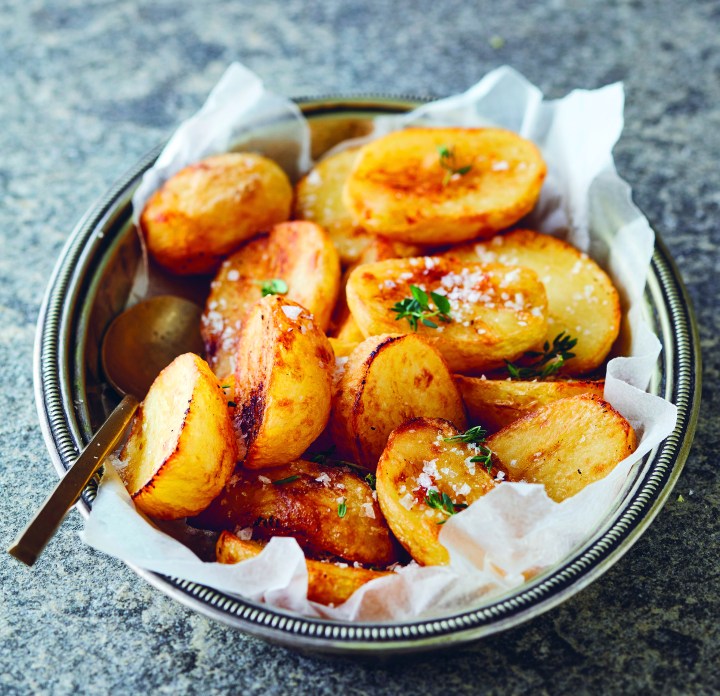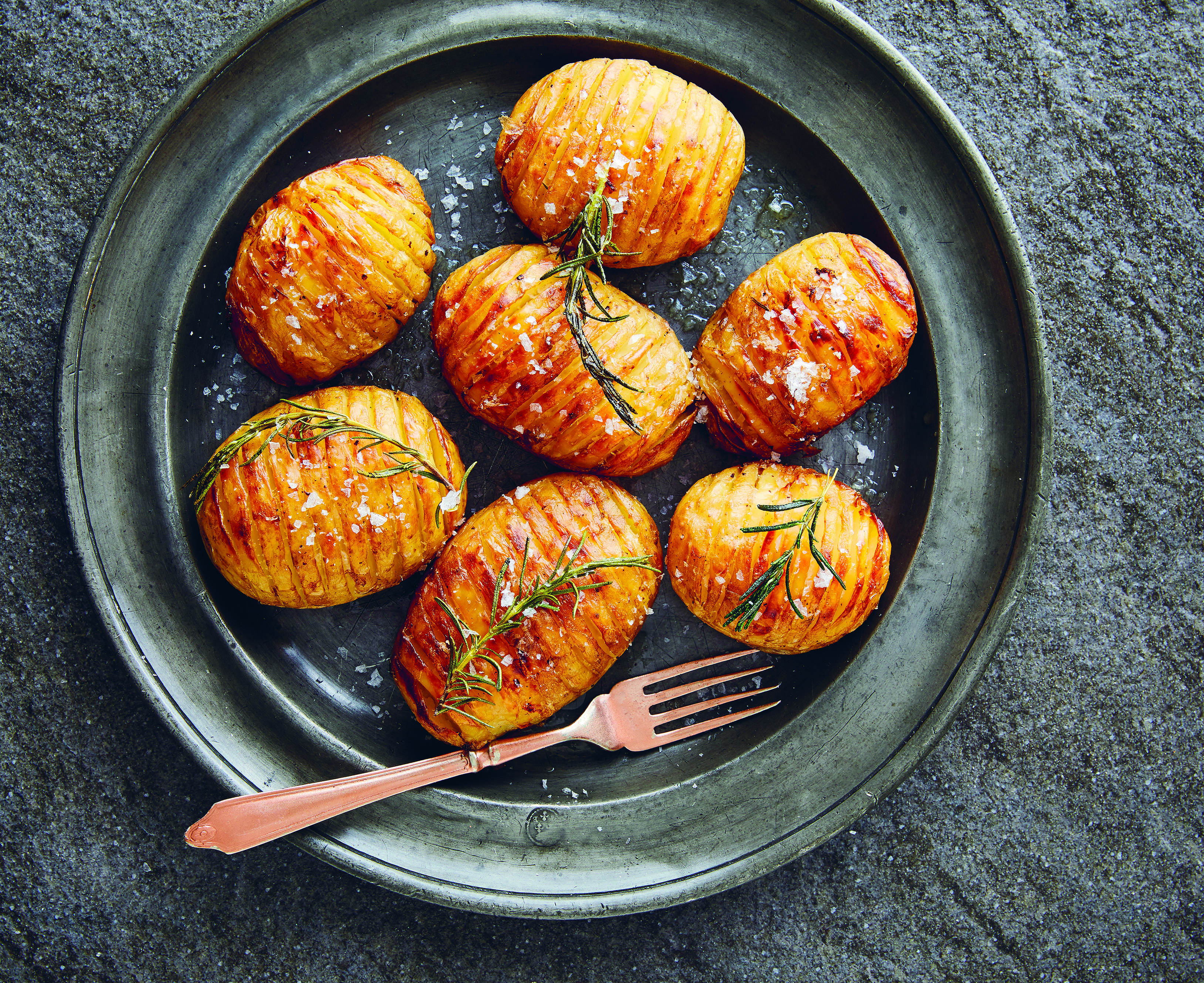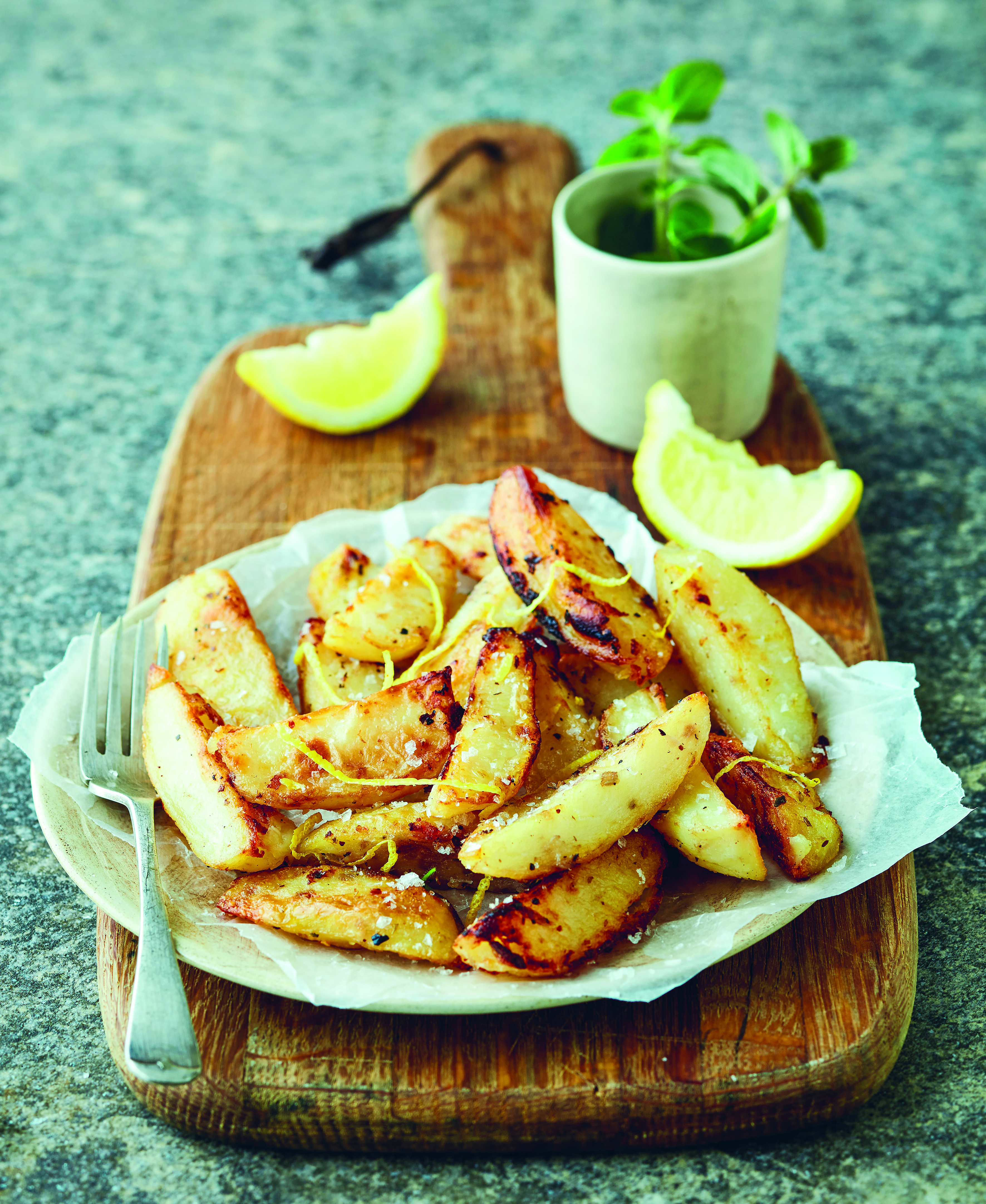GASTROTURF
Boxty & Colcannon: Irish cuisine, or The Art of Staying Alive in Difficult Times

It being St Patrick’s Day on Sunday 17 March, I thought of celebrating it with recipes such as Irish Stew, but then I thought, nah. Satisfying, yes, but … it’s stew. Described by Robert Courtine, the French gourmand and food writer, according to Larousse Gastronomique, as “witness, if not of the art of living, at least of the art of staying alive in difficult times”. Ouch.
Funny how Vichyssoise is French. Leeks. Potatoes. Shouldn’t that be Irish? Leek and potato soup, just like potato and leek soup, is deemed to be Irish, but that of course is an entirely different dish, Vichyssoise being cold, the other hot. But French it is, although Wikipedia does add a soupçon of doubt to the mix. Though it is first credited in French cookbooks of the 1800s as Potage Parmentier, after “Antoine-Augustin Parmentier, the French nutritionist and scholar who popularised the use of potatoes in France in the 18th Century”, Wikipedia quickly back pedals to say:
“Louis Diat, a French chef at the Ritz-Carlton in New York City who grew up in Montmarault in the Allier department near the spa resort town of Vichy, is most often credited with its (re)invention. In 1950, Diat told The New Yorker magazine: ‘In the summer of 1917, when I had been at the Ritz seven years, I reflected upon the potato and leek soup of my childhood which my mother and grandmother used to make. I recalled how during the summer my older brother and I used to cool it off by pouring in cold milk and how delicious it was. I resolved to make something of the sort for the patrons of the Ritz.’”
Hah. Tell that to an Irishman. If you Google Vichyssoise, up come websites including one Food Ireland (lest there’s any doubt as to what the site is devoted to), which lists Vichyssoise without explanation or apology, as if anything containing both leeks and potatoes obviously is open for being claimed as authentically Irish. In case we’re in any doubt about this, it’s listed under “Irish recipes”. It’s as if somebody from Ireland went to France, was served Vichyssoise, tasted it and thought, “Leeks. Potatoes. We’ll have that. And to hell with the Welsh too.”
That does sound like an Irish thought, you must admit. There’s nobody on the planet quite like the Irish. They’re the funniest, wittiest, most outrageous nation on Earth. I love them to bits and used to say so when we lived in England. In the newsroom, to English colleagues. There would be frowns. And puzzled brows. As if thinking: “Why would he like the Irish? They’re Irish…”
Well, okay, the leek is actually the symbol of the Welsh over there across the Irish Sea. The Irish Sea, please note. Not the Welsh Sea. Any rate, the Welsh are just Irish who can’t swim, as a man once said at a dinner in Powys, Wales, in my hearing. Or was it the Irish are just Welsh who can swim? There were groups of journalists in the room from all over the world. Only, one party hadn’t pitched up. Suddenly the doors opened and in they rolled. Punch drunk. It was the Irish contingent who’d been delayed down the pub.

Hasselback Potatoes, from Tony Jackman’s foodSTUFF (Human & Rossouw). Photograph by Myburgh du Plessis. Styled by Sarah Dahl.
We were on a ferry on the Irish Sea once. Never have I seen sea so calm. It was like a sheet of glass with the wake cutting through it. Indoors was a massive pub full of people drinking Guinness, with an Irish band to one side, fiddles, bodhrán and all. And a lovely brunette with a sultry voice singing mellifluous Irish songs. It was as though you were already in Ireland, the minute you boarded the ferry at Holyhead in Anglesey, Wales. I went over to the bar and asked the barman to pull us two pints of Guinness. There ensued the tradition of pouring a pint of the dark Irish brew, a “two-pour” technique that ensures that the dark liquid can be sipped through the head (that’s the velvety frothy part on top). Guinness (the firm) expects, if that’s the right word, that the process should take precisely 119.53 seconds, for the head to be formed perfectly.
So, our ferry barman was in the middle of stage two when a certain person appeared at my elbow muttering about how long it was taking to pour a bloody beer. Whereupon the taciturn barman (he hadn’t uttered a single word to me on ordering) became even more taciturn, as if unsaying what he might have been saying had he been saying anything, which he hadn’t. Which does sound Irish. I swear he slowed the process down to 257.42 seconds just to make a point.
But what a taste. Guinness anywhere else does not taste quite the same as the Guinness in Ireland. For the rest, it was Guinness and Paddy’s, fiddles and bodhráns, and potatoes, potatoes, potatoes, everywhere we went for two weeks. And pub upon pub upon pub. And in each one, in-their-cups men on unsteady stools at the bar telling tales worthy of a drunken poet, and Irish people singing and playing their fiddles and guitars.
And in the shops, so many potato varieties that you get lost in them. There are 90 varieties of the tubers in Ireland, if you believe the Irish Central website, and why wouldn’t we. It’s not a question. The Irish talk rhetorically, like all people with plenty of levity and self-awareness. And they’ll refer to their tatties (sorry, that Scots) as práta, the Irish word for them.
It being St Patrick’s Day on Sunday, I thought of celebrating it with recipes such as Irish Stew, but then I thought, nah. In two weeks in Ireland, we finally ordered it in a pub on St Stephen’s Green in Dublin, and it was less than inspiring, shall we say. You have to have it at least once, because you’re there, but it’s just a stew, like – meat, potatoes, onions, parsley, and white pepper – and that will certainly be satisfying, but, well, it’s a stew. Robert Courtine, the French gourmand and food writer, is quoted in Larousse Gastronomique writing that Irish Stew “is witness, if not of the art of living, at least of the art of staying alive in difficult times”. Ouch. In the proper tradition, neck end of mutton is layered at the bottom of a dish with sliced potatoes and onions, to which water is added, and it’s then simmered over a low heat forever, or until Donal finally comes home from the Drunken Duck and starts kicking off about his supper.

Lemon-Roasted Potatoes, from Tony Jackman’s foodSTUFF (Human & Rossouw). Photograph by Myburgh du Plessis. Styled by Sarah Dahl.
As for Irish potato dishes, there’s colcannon (mashed potatoes with cabbage, or kale if you’re a Dublin hipster with an ironic beard well suited to a grumpy leprechaun called Tater McSpud), and champ, which is mashed potatoes mixed with cheese, spring onions, butter and milk, though it could also be made with stinging nettle, and we did try that in Ireland. I’d go with the kale. Oh and there’s Boxty, the Irish potato cakes.
The 17th day of March every year is reserved for thinking of things Irish in our household, and thinking about things in Irish ways, which means that when your Irish mate says, “That’s grand”, when you’ve told him about your prized new car, he actually means, “Well, it’ll do I suppose”; or, if you’re offering him a cup of tea, be like Mrs Doyle and go-ahn, go-ahn, go-ahn him into submission. Though I might be with Father Jack and his, “Feck off, cup!”
Being a bit of a Potato Head, I do celebrate the potato, Irish or otherwise, in my book foodSTUFF (Human & Rossouw), with recipes for Hasselback Potatoes, an American recipe and highly rewarding to make; Potatoes Roasted in Duck Fat (or goose fat if you can get it, a speciality food store might have them tinned, though I battle to find them in South Africa). There’s also Lemon-Roasted Potatoes, which I made just this week, though instead of using lemon juice and strips of zest, as per the recipe in the book, I made it with thin wedges of lemon and whole garlic cloves in their husks. You get a lovely pop of warm garlic now and then, and the lemon zest provides a pleasing bitterness to offset the sweetness of the garlic. It needs lots of black pepper too.
For Hasselbacks, you need only potatoes, boiling oil and coarse salt. The potatoes are peeled, parboiled and dried. Very carefully, with a very sharp, small knife, cut halfway through the potatoes so you have a sort of ridgeback. Don’t put too much weight on the knife or you’ll cut right through. Preheat oil in the oven so it’s sizzling hot, and lower the potatoes in, hasselback-side-up, using a slotted spoon. Roast till golden-brown.
The potatoes roasted in duck fat are cooked exactly the same way, though you don’t hasselback them (obviously) and you use hot duck fat, not oil.
You could also make my recipe for mash that has no potato in it at all, but parsnips instead. Like this:

Bangers and Parsnip Mash, from Tony Jackman’s foodSTUFF (Human & Rossouw). Photograph by Myburgh du Plessis. Styled by Sarah Dahl.
Parsnips blend to a wonderfully satin-smooth mash once steamed or boiled, and are lovely finished off with butter and salt and pepper. But I can’t see it going down well with the Irish. As Father Ted himself might say, “Down with that sort of thing!” or, as Father Jack might say, “Feck off, parsnip!”. DM
Tony Jackman’s book, foodSTUFF (Human & Rousseau), a cookbook-cum-memoir with essays about life, food, living, family and even grieving and illustrated by 60 recipes, was nominated for the Gourmand World Cookbook Awards (2018) in the category for best food writing. Book enquiries: [email protected]



 Become an Insider
Become an Insider